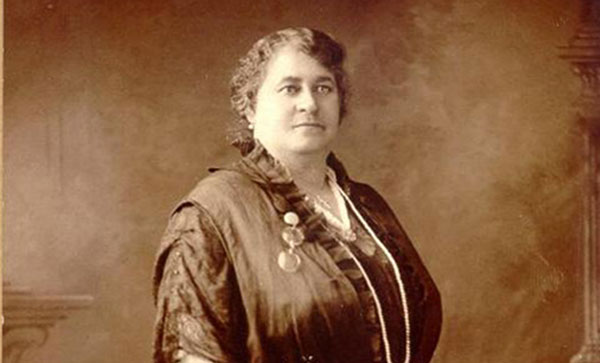Preserving the Maggie L. Walker collection
In 2009 a group of students from the College of William & Mary placed a bet: their history professor would treat them to dinner if they could find new materials about Maggie Walker or the Independent Order of St. Luke (IOSL).


In 2009 a group of students from the College of William & Mary placed a bet: their history professor would treat them to dinner if they could find new materials about Maggie Walker or the Independent Order of St. Luke (IOSL). The students accepted the challenged and went to look in the former headquarters of the IOSL in Richmond, VA. To everyone's astonishment, the students discovered 31 boxes of historical documents with records dating between 1898-1940.
Maggie L. Walker (1864-1934) was the first African American woman to charter a bank in the United States. She was a business woman, organizer, editor, Race Woman, and head of the Independent Order of St. Luke - the African American beneficial organization which had its own newspaper, emporium, bank, and insurance. Most of all, Mrs. Walker was an inspiring and powerful leader during difficult times for African Americans. At its height, under her leadership, the IOSL was a powerful community that created safe spaces; high quality jobs; support for illness; disability and life insurance; and respectful burials. The IOSL paved the way for economic independence for African Americans.
Among the papers found by the students were copies of the organization's newspaper, insurance "death cards" and member information of nearly 100,000 black citizens in twenty-four states. "The Collection is a remarkable find, providing a never-before-seen look at Maggie Walker's life and legacy as one of the leaders for Equal Rights," said Heather Huyck, PhD, Professor at the College of William and Mary. "With the absence of written records and accounts of her life and leadership, Maggie Walker has been somewhat of a 'silent hero' of the Jim Crow Era to advance equal rights for African Americans. Now, with this collection, the tireless work and dedication of the Maggie Walker community with generous support from the National Park Service and Iron Mountain, her voice has been restored alongside so many of her contemporaries who fought every day to ensure the black community has access to equal rights, privileges and benefits."
With support from the National Collaborative for Women's History Sites, the local National Association for the Advancement of Colored People Association and other community members, volunteers worked relentlessly to preserve the documents. They formed the "Maggie Walker Community" to organize and annotate each document. This group then reached out to Iron Mountain to digitize the most important documents in the collection.
"This is a very important project for Iron Mountain and the Southeast region," said Chris Smith, SVP and GM of Records Management. "We were entrusted with one hundred of Maggie Lena Walker's most important documents to digitize and ultimately make available for the public to use to help educate people across the world about the legacy of one of the most important women in the late 18th and 19th centuries."
Through Iron Mountain's Living Legacy Initiative which partners with organizations to preserve and make accessible cultural and historical information and artifacts, our company provided in-kind services to preserve the documents.
Today Maggie Walker's home is a National Historic Landmark in Richmond, Virginia and managed by the National Parks Service. To learn more about Maggie Walker, visit https://www.nps.gov/mawa/index.htm.
Related resources
View More Resources
How to Safely Operationalise AI: From Hype to Enterprise Value

Making Data AI-Ready: How Leading Organisations Are Building Smarter and Safer Ecosystems
 Premium
Premium